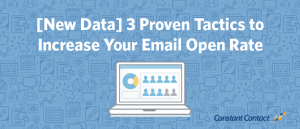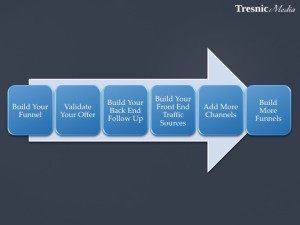When done correctly, bidding on competitors’ brand terms can provide a nice boost to your online advertising performance. After all, if someone is looking for your direct competitor’s products or services, it stands to reason they might be interested in what you offer too.

However, when done the wrong way, it can open up a can of worms that will leave you in a worse place than when you started. My goal with this post is to prepare you with all the information you need to know when you’re deciding whether to bid on your competitors’ brands.
Bidding on Competitor Brand Names: Pros & Cons
Let’s start by reviewing the pros and cons of bidding on your competitors’ brand names in paid search.
Pros
1) It’s Less Competitive
These terms tend to be cheaper to bid on due to the lower competition when bidding on brand names. Since everyone should also be bidding on their own brand names, the actual businesses can get a bunch of clicks and impressions for a fraction of what is being spent elsewhere. Due to the uphill battle of getting conversions, not everyone is willing to invest in the higher CPA.
2) Get Brand Awareness

Another great thing about bidding on competitors’ brands is that it helps you gain brand awareness. When consumers are looking to buy a product from a store, showing up when they search for that brand puts your brand in the conversation. It’s a really good way of saying, “Have you heard of us?” and also promote some competitive advantage you hold.
3) Common Products Being Sold Between You
There is no better way to guarantee that you are getting a qualified audience for your product than if someone is searching for a company that sells the same products that yours does. Everyone searching for your competitor’s brand is also in the market for your products. Plus, every conversion you get is taking one away from your competition.
Cons
1) Starting a War
One serious downside to bidding on a competitor’s brand name is that you are basically starting a war. You are openly inviting your competition to bid on your brand name and start poaching some of your potential sales. While your bidding on their brand names will make it more expensive for them to bid on their own name, the same goes the other way. Their bidding on your brand name makes it more expensive for you to convert on your own brand.
2) Low CTR
When someone searches for a brand online, chances are they have already set their mind on buying from that store. This means that not many people will be clicking on your ads, causing a low CTR. While this may not seem bad given that you aren’t paying when they don’t click on your ads, low CTR can actually cause your Quality Score to decrease, which in turn will make it more expensive for your ad to show. In a way, you still pay when someone doesn’t click on your ad.
If you’ve weighed the pros and cons and think you want to give it a shot, or you’re already bidding on your competitors’ brand terms, it’s important to keep some caveats in mind. Let’s go over some of the most common mistakes businesses make when bidding on competitors’ names.
3 Mistakes to Avoid When Bidding on Competitor Brands
Mistake #1: Thinking everyone should bid on competitors’ brand names
Don’t get me wrong. Bidding on competitors is a good strategy. However, while it can provide a nice boost, it is not necessary, nor should it be done in the early stages of building one’s account. The business-sense of bidding on competitors honestly depends on what your CPA target is. The people searching for other brands are going to be a hard sell due to them already supposedly having their mind set on that other brand. While it is not impossible, nor incredibly difficult to get conversions from bidding on competitors, it will undoubtedly be one of the more expensive conversion sources within your account due to the harder sell of changing consumers’ minds.
This means that for people who really can’t afford a high CPA in their account, bidding on competitors is probably not a good option. Competitors are popular to bid on because people who are searching for your competitors are definitely in the market for the products you sell. Just be smart with your choice.
Mistake #2: Bidding on the Wrong Competitors
One crucial mistake advertisers make when they start advertising on competitors is bidding on the wrong competitors. As a rule of thumb, when choosing competitors to bid on, make sure you’re choosing companies that you are actually competing against. Choose competitors who you feel you have a competitive advantage over, whether it be better prices, bigger supply, or whatever.
One of the biggest mistakes people make is advertising on the big-name competition instead of the businesses that are actually taking business away from them. Let’s face it: your friendly neighborhood hardware store is not really a competitor of a big conglomerate chain like Home Depot. Your neighborhood store might have a better price on hammers than the conglomerate store, but that is not enough to justify bidding on their brand name. His competition is really going to be the other hardware stores in that neighborhood and possibly surrounding neighborhoods. The only thing you’ll get by not choosing the competitors wisely is a large bill with a lot of disappointment.
Mistake #3: Bidding Aggressively on Mobile

As mobile has continued becoming a big part of advertising, it has become critical that advertisers have a strong mobile presence for all their campaigns due to the now-common occurrence of people searching from their phones. We see that a very large portion of monthly searches comes from mobile devices. It is only natural to assume that because of this, advertising on competitors’ brands on mobile would be important when you’re already advertising on desktops. This is actually not the case.
The intent is often different on mobile: When someone is actually searching a store name on their phone, by that point they are likely no longer looking to compare different stores, but rather find that store’s nearest location. So going back to our example from earlier, someone who is searching for “Mom & Pop’s Hardware Store” from their mobile phone is likely no longer researching and is instead looking for the closest location of that store. This means that it is just a waste of money for “Father & Son’s Hardware Store” to bid on their brand because the conversion rate will be very low.
All in all, bidding on competitors can be a good opportunity for those who have the budget to support it and the CPAs to justify it. It’s a great way to grow your business if done right. Avoid some of the pitfalls outlined here and you too can start reaping the rewards.
(216)







